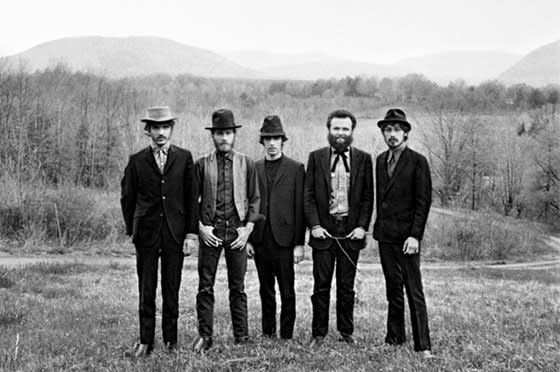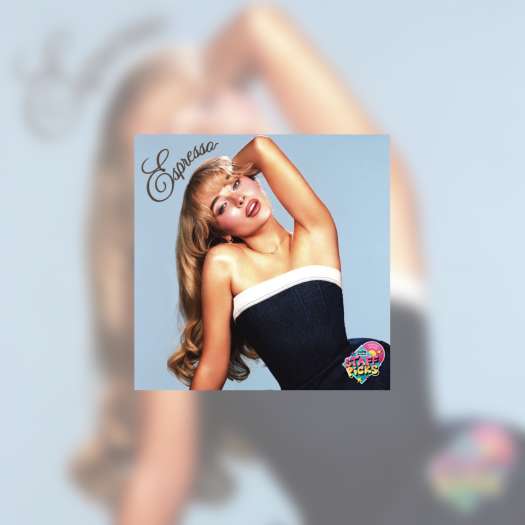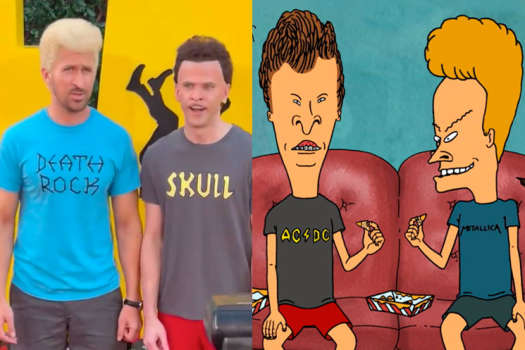Once Were Brothers: Robbie Robertson and the Band is a loving tribute to its subjects — which is both a blessing and a curse. On the one hand, this is a lively behind-the-scenes look at some amazing music, containing a wealth of archival footage and high-profile interviews; on the other, it pulls some punches when portraying the dark side of the famously feuding group.
Director Daniel Roher doesn't make any attempt to present a balanced narrative — hell, Robbie Robertson's name is right there in the title, and the film is based on his autobiography. The story begins with Robertson describing his formative years playing guitar in bands around Toronto and eventually joining the rockabilly outfit Ronnie Hawkins & the Hawks. This part of the story is familiar, but still lively and engaging: the Hawks eventually morphed into the line-up we know as the Band, they backed Bob Dylan during his controversial electric phase, and wrote their classic debut album Music from Big Pink in a garishly painted house in Woodstock, NY.
The film comes with a high-powered team of executive producers — including Martin Scorsese, Brian Grazer and Ron Howard — plus some huge-name interview subjects. Eric Clapton, Bruce Springsteen and others speak in hushed tones about the Band's brilliance; if you didn't already love the Band, Once Were Brothers certainly makes a very strong case on their behalf.
After the idyllic opening half, the Behind the Music-style meltdown inevitably follows in the form of addictions, broken friendships and squabbles over credit. Robertson is presented as an innocent bystander in all this. And while Once Were Brothers doesn't overtly sling mud — and includes some archival interviews with late drummer Levon Helm — we're clearly only getting half of the story. Helm is literally referred to as a "crazy" drug addict who is jealous of Robertson's success. And while Robertson speaks warmly of his late bandmate, it's easy to act gracious when you're in control of the narrative.
It speaks to the fundamental conundrum of music documentaries: make it with the artist's participation and the director will gain exclusive access to the archives, but the film will essentially become promotional material on behalf of its subject. Considering the star-power of Once Were Brothers, the trade-off was mostly worth it, even if Levon Helm fans will disagree.
(Magnolia)Director Daniel Roher doesn't make any attempt to present a balanced narrative — hell, Robbie Robertson's name is right there in the title, and the film is based on his autobiography. The story begins with Robertson describing his formative years playing guitar in bands around Toronto and eventually joining the rockabilly outfit Ronnie Hawkins & the Hawks. This part of the story is familiar, but still lively and engaging: the Hawks eventually morphed into the line-up we know as the Band, they backed Bob Dylan during his controversial electric phase, and wrote their classic debut album Music from Big Pink in a garishly painted house in Woodstock, NY.
The film comes with a high-powered team of executive producers — including Martin Scorsese, Brian Grazer and Ron Howard — plus some huge-name interview subjects. Eric Clapton, Bruce Springsteen and others speak in hushed tones about the Band's brilliance; if you didn't already love the Band, Once Were Brothers certainly makes a very strong case on their behalf.
After the idyllic opening half, the Behind the Music-style meltdown inevitably follows in the form of addictions, broken friendships and squabbles over credit. Robertson is presented as an innocent bystander in all this. And while Once Were Brothers doesn't overtly sling mud — and includes some archival interviews with late drummer Levon Helm — we're clearly only getting half of the story. Helm is literally referred to as a "crazy" drug addict who is jealous of Robertson's success. And while Robertson speaks warmly of his late bandmate, it's easy to act gracious when you're in control of the narrative.
It speaks to the fundamental conundrum of music documentaries: make it with the artist's participation and the director will gain exclusive access to the archives, but the film will essentially become promotional material on behalf of its subject. Considering the star-power of Once Were Brothers, the trade-off was mostly worth it, even if Levon Helm fans will disagree.




